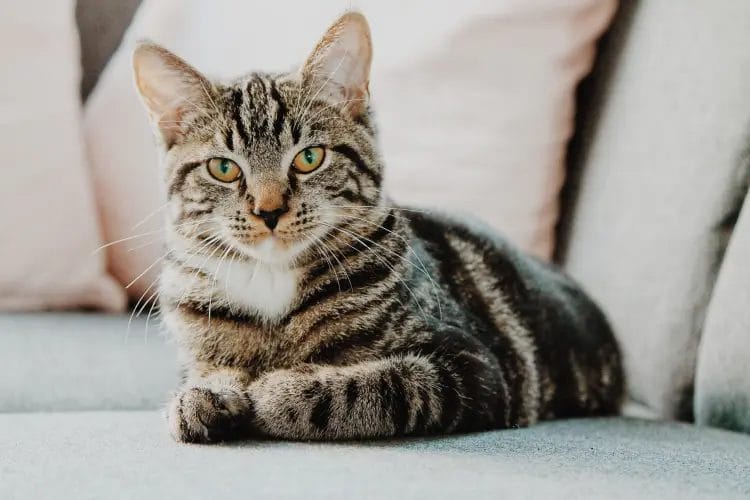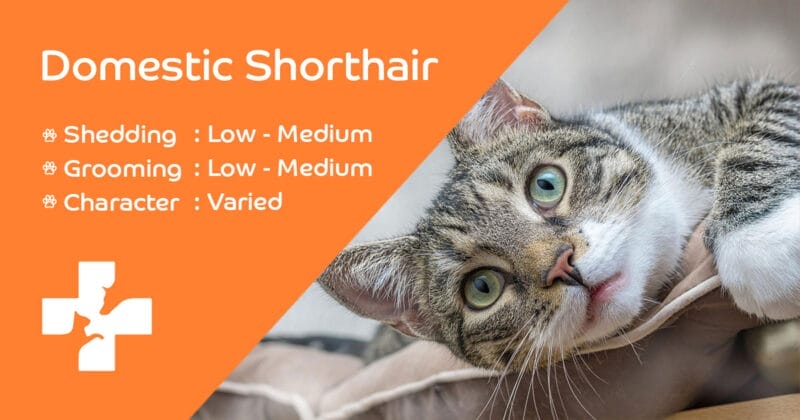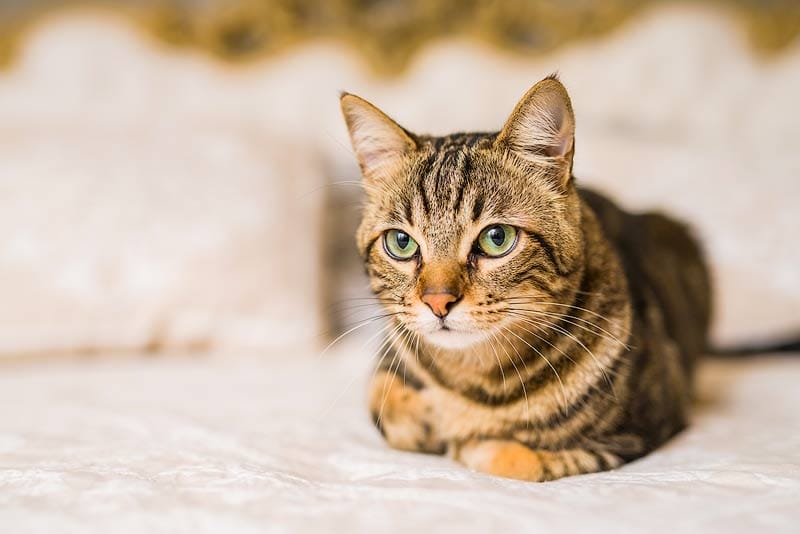The domestic shorthair is one of the most popular cat breeds, known for their loving personalities and wide variety of colors and patterns. This article provides a comprehensive overview of these versatile felines.
Introduction Domestic Shorthair Cat Breeds
With origins tracing back to natural breeding of European cats, the domestic shorthair breed displays great diversity. They are medium-sized cats with a muscular build, rounded head, large expressive eyes, and short dense coat that can come in tabby, solid, bi-color, and multi-color patterns. Intelligent, playful, and affectionate, these adaptable cats make ideal companions.

Affectionate with Family: ⭐⭐⭐⭐
Amount of Shedding: ⭐⭐
General Health: ⭐⭐⭐
Potential for Playfulness: ⭐⭐⭐
Tendency to Vocalize: ⭐⭐
Kid-Friendly: ⭐⭐⭐⭐
Friendly Toward Strangers: ⭐⭐⭐
Easy to Groom: ⭐⭐⭐⭐⭐
Intelligence: ⭐⭐⭐
Pet Friendly: ⭐⭐⭐
Domestic shorthairs display great diversity:
- Appearance: Muscular build, round head, large eyes, short fur in tabby, bicolor, solid, calico patterns.
- Characteristics: Intelligent, playful, affectionate, vocal at times.
- Popularity: One of the most common cat breeds.
- Temperament: Social, friendly, enjoys human interaction.
- Lifespan: 12-20 years.
- Coat Colors: Tabby, tuxedo, calico, tortoiseshell, solid, bicolor.
The domestic shorthair is a mixed breed cat with ancestry likely including British Shorthair, European Shorthair, American Shorthair.
Caring for a Domestic Shorthair
Proper nutrition, socialization, vet care, grooming, and environmental enrichment are important for these cats:
- Food: Quality cat food, treats like chicken or fish, always fresh water. Avoid overfeeding.
- Environment: Comfy beds, scratching posts, interactive toys, litter boxes, window perches.
- Grooming: Weekly brushing, nail trims every 2-3 weeks, check ears and clean if needed. Occasional baths.
- Care: Daily playtime and affection. Annual vet visits. Spay/neuter at 6 months.

Adopting a Domestic Shorthair
Domestic shorthairs are very common in shelters across North America and Europe. Adoption fees range from $50-$100. Reputable rescues include:
- UK – Cats Protection, Blue Cross
- USA – ASPCA, Best Friends Animal Society
- Canada – Humane Society, SPCA
Before adopting, assess:
- Health – alert, clear eyes, healthy coat.
- Vaccines – FVRCP, rabies.
- Medical history – issues to watch for.
Preparing for a kitty
To prepare for your new cat:
- Cat-proof your home by removing hazards and securing chemicals.
- Have food, water, litter boxes, beds, scratchers, toys set up in advance.
- Stock up on cat food, litter, meds, grooming tools, first aid kit.
- Make vet appointments for exams, vaccines, spay/neuter.
- Essentials include food bowls, litter box and scoop, scratching posts, interactive toys, brush, and nail clippers.
Watch for common issues like upper respiratory infections, skin conditions, dental disease, and parasites. Stay up to date on vaccines like rabies, FVRCP, FeLV.

Naming
Opt for 2-3 syllable names with distinct consonant sounds. Consider your cat’s appearance and personality.
Popular names are Luna, Oliver, Lily, Lucy, Charlie, Felix, Millie, Max, Simba, Chloe.
Do domestic shorthairs like going outside?
They can thrive indoors or outdoors. Outdoor cats need more frequent vet visits and parasite control.
Are domestic shorthairs intelligent?
Yes, they are smart and can be trained through positive reinforcement.
How many coat patterns do domestic shorthairs have?
They display over 100 coat colors/patterns including tabby, tuxedo, calico, tortoiseshell, solid.
How can I stop my cat from biting?
Redirect biting to appropriate toys, use deterrent sprays, reward gentle behavior with treats, and provide sufficient daily playtime.
How can I stop my cat from scratching furniture?
Provide ample scratching posts around your home and reward their use with treats. Keep nails trimmed. Use deterrent sprays on furniture.
How can I socialize and raise a friendly domestic shorthair?
Socialize kittens under 12 weeks through gentle handling, exposure to new sights/sounds, and positive vet visits. Reward desired adult behaviors.
How can I train my domestic shorthair cat?
Use clicker training and treats to reward behaviors like coming when called, sitting, or using scratching posts. Be consistent and keep sessions short and positive.
How often should I take my cat to the vet?
Take your cat to the vet annually and if any health concerns come up. Kittens need visits every 3-4 weeks for vaccines and checkups.
Are domestic shorthairs good family pets?
Yes, they make wonderful family pets with their playful, affectionate nature and tolerance of handling. They do well with children.
Are domestic shorthairs good with other pets?
They tend to coexist fine with cat-friendly dogs. Introduce new pets slowly and provide separate resources to prevent conflict.
Can domestic shorthairs cause allergies?
They produce moderate amounts of Fel d 1 allergen. Make sure you aren’t allergic before adopting.
Are domestic shorthairs aggressive?
They are rarely aggressive with proper care and handling. Neglect or abuse can lead to defensive behaviors.
Do domestic shorthairs have hair loss issues?
Stress, skin conditions, poor nutrition or parasites can cause overgrooming and bald spots. Treat the underlying cause.
Are you a cat lover who wants to learn more about your furry friends? Do you want to find the best cat food, cat care tips, and resources for your cats? If so, you’ve come to the right place! Welcome to Cat Food Site, the ultimate website for cat enthusiast.
Here you will find everything you need to know about cats Breed, from their health and behavior to their breeds, cat diet and names. You will also discover the latest cat news, cat nutrition, trends, and memes from around the web.

